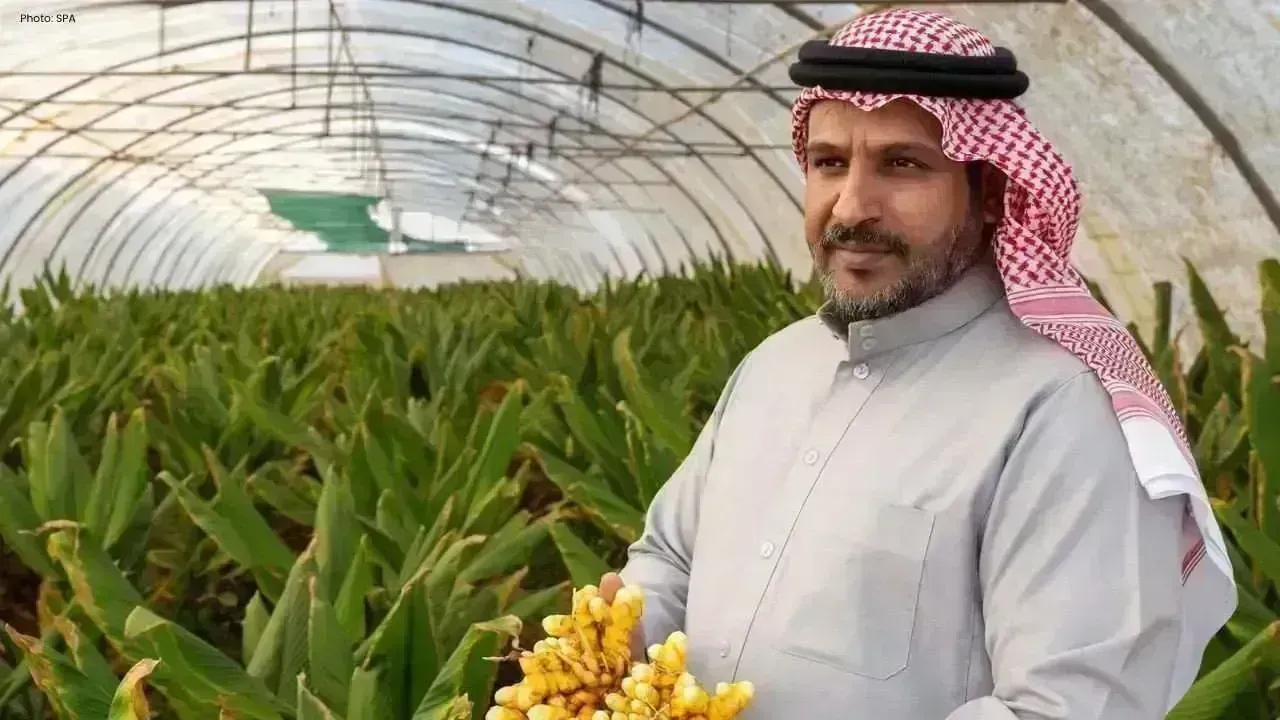
Post by : Mara Rahim
In a significant move towards agricultural advancement, the Tabuk Region has made headlines by successfully cultivating turmeric for the first time. This pioneering effort signals the potential for the area to diversify its agricultural portfolio and incorporate more lucrative crops. Local agriculturists and specialists anticipate that such ventures will pave the way for a broader range of profitable farming options in the future.
Farmer Abdulmajeed Al-Atwi highlighted the rarity of turmeric in this part of Saudi Arabia, emphasizing its substantial nutritional and economic significance. As a root plant typically associated with semi-tropical regions, turmeric demands meticulous care, especially when it comes to seed selection and optimal planting timing to thrive.
Al-Atwi noted that the growth cycle for turmeric spans eight to ten months; during this period, consistent watering is vital without oversaturation of the soil. Hence, farmers have adopted controlled irrigation methods to maintain the right moisture levels. He recommends organic fertilizers alongside small doses of NPK for promoting healthy growth and enhancing crop quality.
Soil aeration is critical for successful turmeric cultivation, according to Al-Atwi. He stated that drip irrigation not only conserves water but also ensures that soil remains adequately aerated, benefiting root health. This environmentally-conscious approach has enabled Tabuk farmers to produce turmeric that meets high-quality standards.
The post-harvest processing is equally crucial, influencing the final quality of turmeric. Al-Atwi pointed out that the careful sorting, drying, and moisture control of the roots are vital for achieving market desirability. Properly processed turmeric from Tabuk has already received positive feedback from locals, who appreciate both its superior quality and local origins, reinforcing its value in the marketplace.
For Al-Atwi, the successful introduction of turmeric farming transcends mere crop production; it represents a step forward in regional agricultural practices. Incorporating crops like turmeric enriches the agricultural ecosystem and emphasizes sustainable practices. These measures not only benefit the environment but also ensure long-term soil health.
He also underscored the necessity of fostering local processing industries to augment the benefits of turmeric farming. From oils to powders to natural supplements, establishing local factories can amplify farmers’ profits, boost economic returns, and generate job opportunities in the community.
Tabuk's farmers regard this successful endeavor as a blueprint for future agricultural projects. The triumph of turmeric cultivation illustrates the viability of introducing new, high-value crops when supported by scientific techniques, efficient water usage, and modern agricultural practices. As the region ventures further into agricultural innovation, turmeric stands as a beacon of sustainability and economic promise.










Mattel Revives Masters of the Universe Action Figures Ahead of Film Launch
Mattel is reintroducing Masters of the Universe figures in line with its upcoming film, tapping into

China Executes 11 Members of Criminal Clan Linked to Myanmar Scam
China has executed 11 criminals associated with the Ming family, known for major scams and human tra

US Issues Alarm to Iran as Military Forces Deploy in Gulf Region
With a significant military presence in the Gulf, Trump urges Iran to negotiate a nuclear deal or fa

Copper Prices Reach Unprecedented Highs Amid Geopolitical Turmoil
Copper prices soar to all-time highs as geopolitical tensions and a weakening dollar boost investor

New Zealand Secures First Win Against India, Triumph by 50 Runs
New Zealand won the 4th T20I against India by 50 runs in Vizag. Despite Dube's impressive 65, India